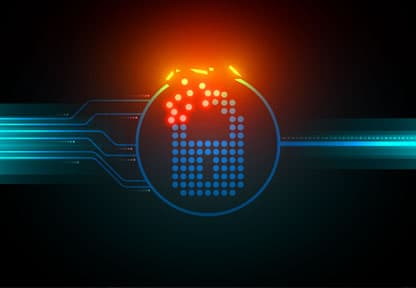July 17, 2025 • Mary Marshall
Multi-Factor Authentication Methods: Technology Comparison
Dive into the comparison of diverse mfa methods and learn why Avatier leads the industry in seamless and secure identity management.

Security is paramount. As cyber threats become increasingly sophisticated, businesses need robust methods to protect their data. Multi-Factor Authentication (MFA) has emerged as a critical component in strengthening cybersecurity measures by adding additional layers of verification. In this article, we compare different MFA technologies and explore how Avatier provides innovative solutions that outshine competitors like Okta, SailPoint, and Ping Identity.
The Growing Importance of MFA
Cybersecurity threats are becoming more advanced, and data breaches are at an all-time high. According to a report by Verizon, 81% of hacking-related breaches involved weak or stolen credentials. This alarming statistic indicates the necessity for organizations to bolster their security measures. MFA is a powerful way to add extra security layers by requiring multiple verification methods from independent categories of credentials — what users know, what they have, or who they are.
Popular MFA Methods
SMS-Based Authentication SMS-based authentication is one of the most widely used MFA methods, primarily because of its ease of use. It involves sending a one-time code to a user’s mobile phone. However, its security is highly questioned. As highlighted by the U.S. National Institute of Standards and Technology (NIST), there are risks associated with SMS-based MFA, primarily due to vulnerabilities like SIM swapping.
Authenticator Apps Applications such as Google Authenticator and Microsoft Authenticator generate time-based one-time passwords (TOTPs) that users input alongside their regular credentials. This approach adds a solid layer of security since the codes are not tied to a specific network system or personal phone number.
Biometrics Biometric authentication, which uses fingerprints, facial recognition, or retina scans, is often considered one of the most secure forms of MFA. With advancements in technology, biometric solutions are becoming more cost-effective and accessible. Avatier integrates biometric solutions for enhanced security, as seen in various industries.
Hardware Security Keys Physical tokens or smart cards that authenticate a user by providing a cryptographic key are becoming increasingly popular. Companies like Yubico have pioneered this field with hardware keys offering robust security against phishing attacks.
Comparing the Technologies
When comparing these technologies, it’s crucial to consider factors such as security level, ease of use, implementation cost, and compatibility:
- Security: Biometrics and hardware keys generally provide the highest security as they are difficult to replicate or phish.
- Ease of Use: SMS and Authenticator Apps offer simplicity with limited user training required.
- Cost: Implementing biometric systems and distributing hardware keys can be more expensive than SMS-based solutions.
- Compatibility: Authenticator apps and hardware keys typically offer broader compatibility across devices compared to other methods.
Avatier’s Approach to MFA
Avatier stands out in the MFA landscape by offering a versatile and innovative solution. With a strong focus on AI-driven identity management, the company provides multi-factor integration that caters to varied enterprise needs:
- Unified and Automation-Driven Workflows: Avatier streamlines identity management processes to automate user identity and access provisioning, substantially reducing manual overhead and risk of errors.
- Zero-Trust Architecture: By adhering to zero-trust principles, Avatier secures user identity management by ensuring every access request undergoes strict verification.
- Seamless User Experience: Avatier’s solutions are designed for user-friendliness, ensuring that security does not come at the cost of user convenience — a critical balance in today’s fast-paced business environments.
Why Avatier is Preferred Over Competitors
When compared with competitors like Okta, Ping Identity, and SailPoint, Avatier offers several advantages:
Customization and Flexibility: While Okta and Ping Identity provide extensive MFA solutions, Avatier’s Identity Anywhere platform offers unmatched flexibility and customization options, allowing businesses to adapt their security postures efficiently.
Cost Efficiency: Avatier’s containerized identity framework ensures cost savings by enabling businesses to make the most out of their existing technological investments without being locked into a single vendor ecosystem.
Innovative Security Features: Avatier leads the market with its innovative capabilities, integrating AI-based security enhancements that are continually updated to counter evolving threats.
Customer Satisfaction: Users commend Avatier for its seamless integration and robust security. According to a study from Forrester, enterprises report greater user satisfaction with Avatier’s user provisioning automation compared to other platforms.
Conclusion
As organizations aim to bolster their digital defenses, the choice of MFA technology becomes increasingly critical. While each method has its merits, the decision should align with business needs and security priorities. Avatier provides a comprehensive and flexible solution that addresses various pain points in identity management, ensuring robust security and seamless user experience.
For a more detailed understanding of Avatier’s offerings in password management, consider exploring the company’s Enterprise Password Manager service. As businesses continue to navigate the complexities of digital security, partnering with a reliable, forward-thinking provider like Avatier is essential for maintaining secure and efficient operations in today’s interconnected world.









